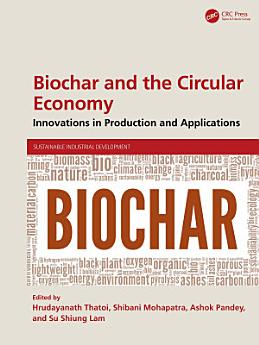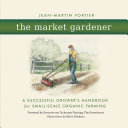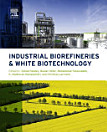Biochar and the Circular Economy: Innovations in Production and Applications
About this ebook
Key Features:
- Explains the concept of biochar within the framework of the circular economy and sustainable development
- Details innovative production techniques using various biomass feedstocks including agricultural waste, food scraps, and sewage sludge
- Explores agricultural applications, such as improving soil structure, fertility, and crop yield
- Presents industrial uses of biochar in removing contaminants like heavy metals and dyes from wastewater
- Highlights its role in anaerobic digestion and renewable energy, especially in biogas and hydrogen generation
This book is useful for researchers and professionals of biotechnology and environmental sciences.
About the author
Hrudayanath Thatoi serves as the Director of the Centre for Industrial Biotechnology Research at Siksha 'O' Anusandhan (Deemed to be University), Bhubaneswar, Odisha, India. His extensive academic portfolio includes 340 published research papers, 40 conference proceedings, and 63 book chapters. In addition, Prof. Thatoi has authored three textbooks and edited 22 books. He also holds three patents. One of his notable publications includes Effective remediation of Cr(VI) using coconut coir-derived porous biochar: application of kinetics and isotherm approaches. His research expertise includes lignin nanoparticles, nanocomposites, hybrid materials, and nano-biochar applications in bioremediation. He has also supervised numerous Ph.D. students in this field.
Shibani Mohapatra is an Assistant Professor (Research) at the Center for Biotechnology (CBT), Siksha 'O' Anusandhan University, Bhubaneswar. She earned her Ph.D. in Life Sciences from the National Rice Research Institute and North Orissa University, where her research focused on gene stacking for submergence tolerance, bacterial blight resistance, and yield improvement in the rice variety Swarna. Dr. Mohapatra has published 24 research papers in national and international journals. Her current research interests lie in Environmental Biotechnology and Plant Biotechnology.
Ashok Pandey is currently the Executive Director of the Centre for Energy and Environmental Sustainability-India, Lucknow. He previously served as a Distinguished Scientist at the Centre for Innovation and Translational Research, CSIR-Indian Institute of Toxicology Research, Lucknow, and as Chief Scientist and Head of the Centre for Biofuels at CSIR–National Institute for Interdisciplinary Science and Technology, Trivandrum. He holds several prestigious positions, including HTBS National Innovation Chair (Biotechnology), Distinguished Professor at UPES, Dehradun, and Distinguished Adjunct Professor at SIMST, Chennai. His primary research interests include industrial and environmental biotechnology, and energy biosciences, with a focus on biomass-to-biofuels and chemicals, and waste-to-wealth and energy conversion. Professor Pandey has also served as an Adjunct or Visiting Professor/Scientist at institutions in France, Germany, Brazil, Argentina, Mexico, Canada, China, South Korea, South Africa, Malaysia, Thailand, Switzerland, the USA, the UK, and others.
Su Shiung Lam is a tenured Professor of Universiti Malaysia Terengganu (UMT) in the Institute of Tropical Aquaculture and Fisheries, recognized as the Higher Institution Centre of Excellence (HICoE) for Sustainable Shellfish Aquaculture by the Ministry of Higher Education Malaysia. He is widely recognized for his significant contributions to Chemical and Environmental Engineering, particularly in the areas of sustainable technologies and waste utilization. His research expertise includes thermochemical processes, waste treatment, and biomass refinery, with a specialization in pyrolysis and microwave heating applications. He has secured 43 research grants, filed patents, and successfully commercialized innovations developed by his team. With over 560 published articles, Professor Lam is a highly cited researcher. He has received numerous national and international awards and is consistently ranked among the top 2% of scientists in his field, according to the Stanford University global rankings.








